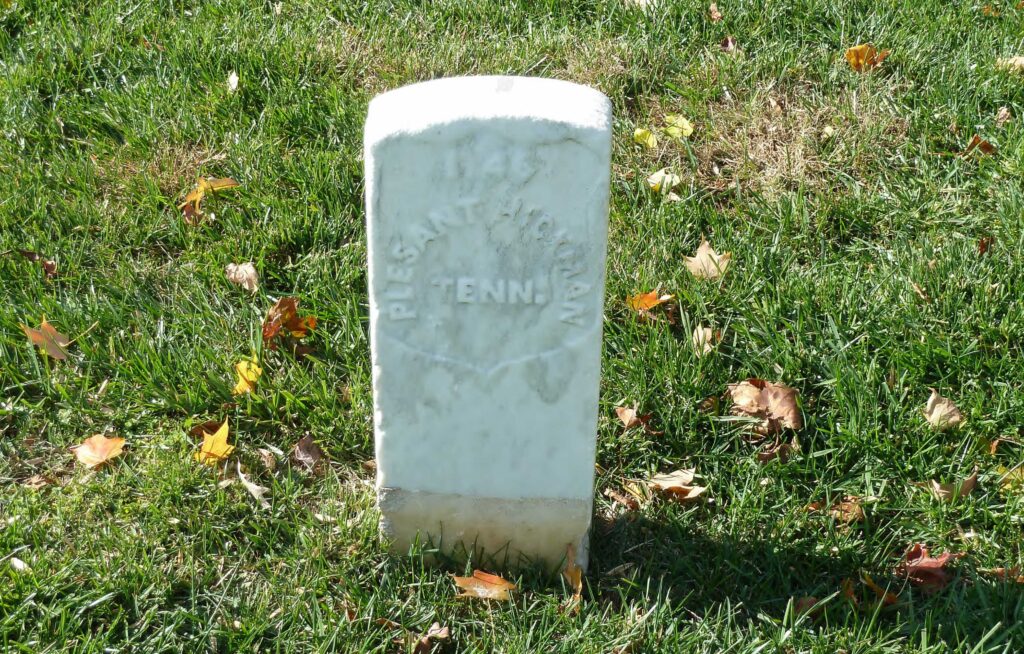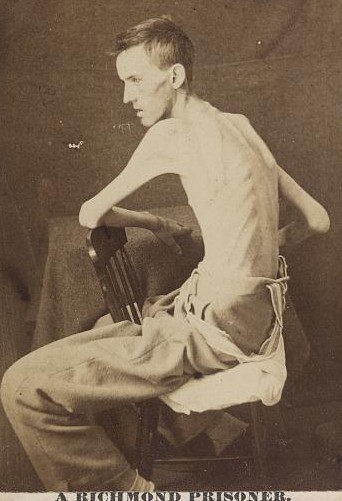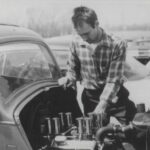Allow me to introduce you to our ancestor Pleasant Hickman, who was born around 1813 into a large family led by his Baptist minister father Jesse Lee Hickman. We know very little about Pleasant’s life growing up. As a child, his parents had settled in Allen County, Kentucky, which sits right on the Tennessee border, but by 1840, Pleasant had moved his family across the border to Jefferson County, Tennessee, where they lived happily for many years. He then did something that it is hard for us to understand. Why would a man approaching the age of 50, after 30 years of marriage, and raising seven children to adulthood, choose to volunteer for military duty? In late 1863, that is exactly what Pleasant Hickman did. Moreover, he joined a unit called the 11th Tennessee Cavalry which actually fought for the Union.
Perhaps his action helps illustrate the complicated politics of the region at the time. Tennessee was ultimately a Confederate state, however, they were the last to secede and public sentiment was deeply divided leading up to the Civil War. In fact, one of Pleasant’s sons, Frederick, had enlisted the previous year in the 61st Mounted Infantry – fighting for the Confederacy – so, even within a single family there was no unity.
Pleasant mustered at Camp Nelson, Kentucky, just south of Lexington in August 1863 and agreed to serve a three year enlistment as a private. His regiment was almost immediately sent to patrol the area surrounding the Cumberland Gap – a strategic chokepoint for both the Union and the Confederacy to move troops, equipment, and information. Reports from the unit commanders reveal that the 11th Cavalry was poorly equipped and not well trained. At a time when volunteers were expected to bring their own horses to the fight, it is not surprising that there were reportedly only two men in the entire unit on horseback. They spent the long winter of 1863-1864 just trying to survive, while guarding the eastern entrance to the Cumberland Gap near Jonesville, Virginia. But on Feb 22, 1864, they engaged a large Confederate force in what is called the Battle of Wyerman’s Mill, about five miles east of the Cumberland Gap. Although casualties were low, approximately 250 members of the Union forces were taken prisoner – which can often be a sign of troops that are unprepared to fight. Not at all surprising under the circumstances.
Records show that Pleasant Hickman was among those captured by the Confederacy, and sadly, he died just a month later, debilitated by starvation. Again, not surprising given that the Confederacy could barely afford to feed its own troops. Some believe that these captured soldiers were sent to the notorious Andersonville Prison (almost 500 miles away in Georgia), and it is possible that some of them were, but given the timeline of Pleasant’s death, it is unlikely that he spent any time there. He was probably held as a POW in Richmond, Virginia until it became obvious that he needed medical attention. He was then transferred to the US General Hospital in Annapolis, Maryland, where he died on Mar 24, 1864. Records indicate that Pleasant’s son Frederick was also captured at one point by the Union, but he did not suffer his father’s fate and made it out of the war alive.






Pingback: Finding Your Path – The Pipes Family Foundation